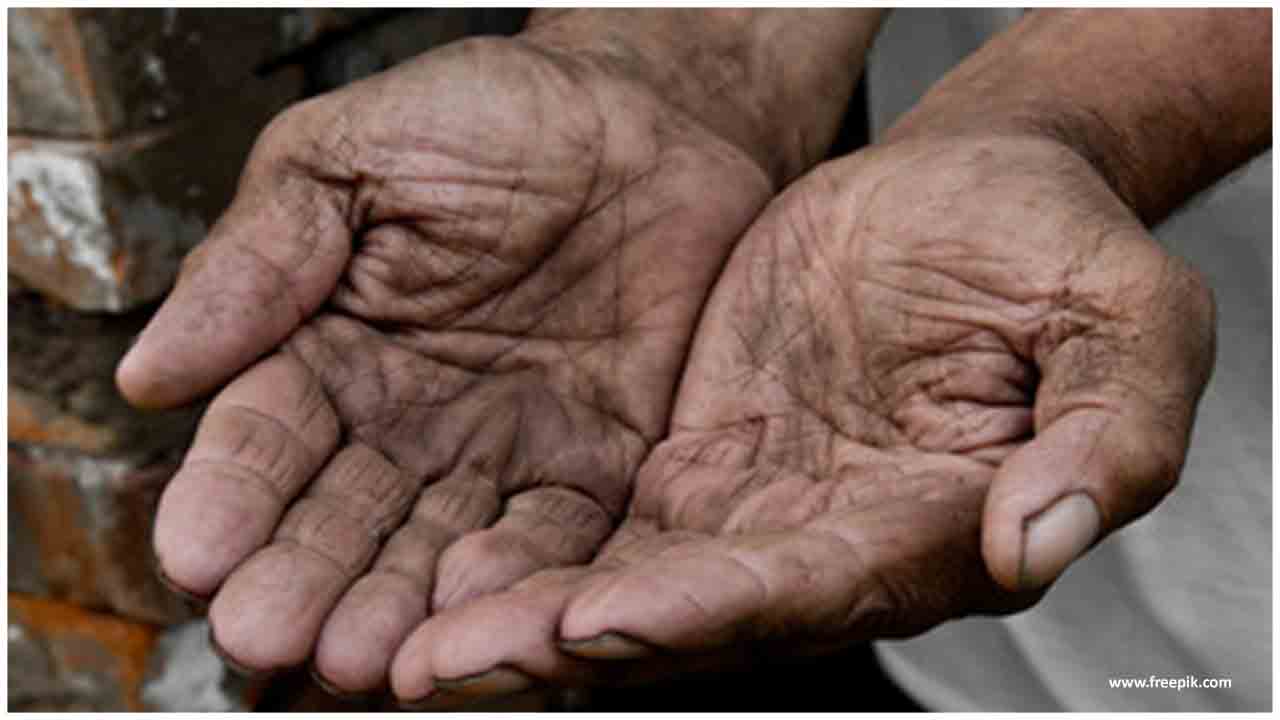Almost one of every nine individuals on the planet are going hungry, with the coronavirus pandemic compounding previously exacerbating patterns this year, as per a United Nations report distributed Monday.
Financial lulls and atmosphere related stuns are driving more individuals into hunger, while nutritious nourishments remain excessively costly for some, contributing not exclusively to undernourishment, yet to developing paces of heftiness in grown-ups and kids.
"Following quite a while of long decay, the quantity of individuals experiencing hunger has been gradually expanding since 2014," said the State of Food Security and Nutrition in the World yearly report.
In addition to the fact that people needed enough food, however nutritious food, the investigation stated, referring to exorbitant "wellbeing and ecological outcomes" of below-average weight control plans.
Almost 690 million individuals, or 8.9 percent of individuals around the world, are eager, the UN found.
That number rose by 10 million individuals in only one year to 2019, and by 60 million in the previous five years, found the investigation, which said destroying hunger by 2030 - an objective set five years back - will be outlandish if patterns proceed.
By 2030, more than 890 million individuals could be influenced by hunger, or 9.8 percent of the total populace, it assessed.
Five United Nations offices co-created the report: the Food and Agriculture Organization (FAO), the International Fund for Agricultural Development (IFAD), the United Nations Children's Fund (UNICEF), the World Food Program (WFP) and the World Health Organization (WHO).
A year ago, the report evaluated that more than 820 million individuals were going hungry, yet gauges were recalculated following changed information from China for earlier years.
Progressively undernourished individuals
When estimating both moderate and serious food frailty in 2019, the number inflatables from 690 million to 2 billion individuals without "ordinary access to sheltered, nutritious and adequate food".
The COVID-19 pandemic, which has hit hard in countries with far-reaching neediness, could cause another 83 to 132 million individuals to become undernourished for the current year, the report said.
Worldwide patterns had just been intensifying before coronavirus, it said.
About a fourth of Africa's populace could go hungry by 2030 from 19.1 percent today, as of now double the world normal.
In Asia, the number of hungry individuals fell by 8 million individuals since 2015, in spite of the fact that the mainland stays home to the greater part of the world's undernourished individuals.
Patterns in Latin America and the Caribbean are compounding, with 9 million more eager individuals a year ago than in 2015.
Excessively costly
"A key motivation behind why a large number of individuals around the globe experience the ill effects of yearning, food frailty and failing health is on the grounds that they can't bear the cost of the expense of sound weight control plans," found the report.
In all locales, grown-up weight is on the ascent, with sound eating regimens of organic products, vegetables, and protein-rich nourishments exorbitant to somewhere in the range of 3 billion individuals.
More than 57 percent of individuals in sub-Saharan Africa and Southern Asia can't bear the cost of a solid eating routine.
Low-pay nations depend on dull staples like grains and tubers that can cost 60 percent not exactly solid eating regimens, however need fundamental proteins and key nutrients and minerals to lessen contaminations and avoid sickness.
The report discovered 21.3 percent of youngsters under five, or 144 million, experienced hindered development because of hunger, the greater part of them in Africa or Asia.
Another 6.9 percent were "squandered" with dietary awkward nature, while 5.6 percent were overweight.
Of the overweight kids, 45 percent originate from Asia, and 24 percent from Africa, underscoring how ailing health appears as both undernutrition and weight.
Current examples in food utilization are evaluated to bring about wellbeing expenses of over $1.3 trillion every year by 2030.
Be that as it may, more beneficial weight control plans could bring down those expenses by up to 97 percent, the report assessed, referring to a veggie lover diet with related wellbeing expenses of under $100 million.
Expenses are likewise connected with ozone-depleting substance outflows brought about by the present food creation framework which could likewise be diminished by elective weight control plans.
While recognizing significant expenses for sound food is because of an assortment of variables from lacking enhancement and deficient food stockpiling to local appropriations that favor staples, the report called a "critical rebalancing of horticultural approaches and impetuses."

 Economic slowdowns and climate-related shocks are pushing more people into hunger, while nutritious foods remain too expensive for many, the report found.
Economic slowdowns and climate-related shocks are pushing more people into hunger, while nutritious foods remain too expensive for many, the report found.









.jpeg)



.jpg)





.jpeg)



.jpg)


.jpg)




.jpg)


